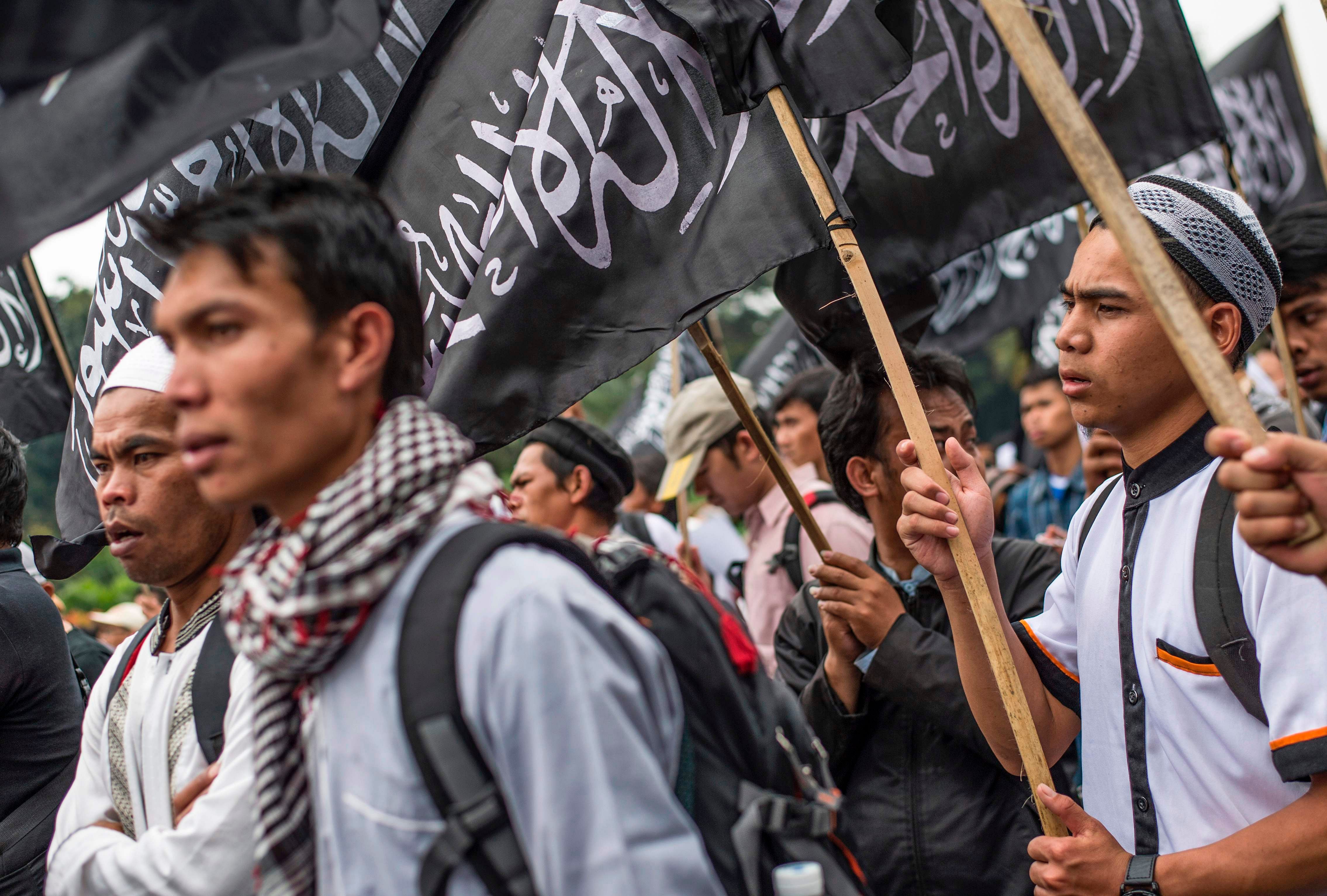On Monday last week, Indonesian President Joko Widodo signed a government regulation which amends Law No. 17/2013 on Civil Society Organisations (CSO) to expedite the legal process to disband "illegal" civil society organisations. The emergency regulation was publicly announced last Wednesday by retired general Wiranto, the Coordinating Minister for Political, Legal and Security Affairs.
Perppu No. 2/2017 disbands a civil society organisation that is found to have committed a number of offences. They include advocating secession from the unitary Republic of Indonesia, committing an act which opposes Indonesia's national ideology Pancasila (Five Principles) as well as engaging in a blasphemous act against an officially recognised religious group.
The new regulation scraps the legal procedures specified in the 2013 Law on Civil Society Organisations to revoke the legal recognition of a CSO. Formerly, this was an elaborate procedure, requiring the government to issue three notices against the organisation before it may proceed to petition the lower court to issue a ruling to revoke its legal status. The CSO had the right to defend itself in the court and the right to appeal against the ruling to the Indonesian Supreme Court, which would issue the final ruling on the matter.
Now the government has the right to revoke an organisation's legal recognition after giving it seven days' notice that it is breaking the Civil Society Law. The Ministry of Law and Human Rights then has full authority to disband the CSO without having to go to court to obtain a ruling against the organisation.
The emergency regulation is widely perceived as giving the Indonesian government an expedited authority to ban hardline Islamist groups such as Hizbut Tahrir Indonesia (HTI). It is the Indonesian affiliate of the global Hizb-ut Tahrir (Party of Liberation) movement, which advocates the establishment of a global Islamic caliphate.
HTI has attracted a wide following in Indonesia, especially among high school and university students and middle-class professionals for its propagation (da'wa) activities, which call for the country to be part of a global caliphate system, contradicting its standing as a sovereign unitary republic - Negara Kesatuan Republik Indonesia.

HTI was part of a broad coalition of Islamic organisations which mobilised a series of protests against former Jakarta governor Basuki Tjahaja Purnama for allegedly committing a blasphemous act against Islam in one of his re-election campaign speeches. Their year-long campaign against Basuki contributed to his defeat in April and his conviction for blasphemy in May, for which he is serving a two-year prison sentence.
President Joko has been under pressure to rein in the organisation. His supporters argue that HTI and other Islamist groups like the Islamic Defenders Front could plan further actions that would endanger his re-election prospects in 2019. This is indicated by his swift action in issuing the Perppu, an extraordinary measure that he has utilised only twice previously during his three-year-old presidency.
Mr Joko's decision to issue the Perppu came under strong criticism from rights groups and a number of Islamic bodies. They protested against the broad authority now granted to the government to disband any group that commits the above offences, pointing out that under the new law, the government has the authority to ban any civil society group, not just those promoting hardline Islamic ideology.
Human rights groups condemn the Perppu for "undermining the rights of freedom of association and expression" and warn that it could bring back authoritarian rule like that under Indonesia's dictator Suharto from 1966 to 1998.
HTI, the primary target of the regulation, has issued a statement stating that it strongly rejects the regulation, insisting it has not broken any laws and that it is simply preaching Islamic values to its followers. It plans to file an appeal to Indonesia's Constitutional Court to challenge the Perppu's constitutionality. It has hired prominent lawyer and politician Yusril Ihza Mahendra, a former minister of law and human rights, to represent it in its Constitutional Court appeal.
Muhammadiyah and Nahdlatul Ulama (NU), Indonesia's two largest Islamic organisations, have diverging opinions regarding the emergency regulation. Muhammadiyah condemns the government's decision to issue the Perppu, stating that its issuance is "a high price to pay for Indonesian democracy, especially if it is intended against just one specific organisation".
However, NU officially supports the regulation. NU's general chairman Said Aqil Siradj states that it is needed to ban any organisation which opposes Pancasila and to stop the growth of hardline groups like HTI, which is now supported by about 9 per cent of Indonesia's population.
This is not the final word on the Perppu; it still needs to be endorsed by the Indonesian Parliament and affirmed by the Constitutional Court in a widely anticipated legal challenge by human rights and Islamist groups.
Whether the regulation is only intended to crack down on hardline Islamist groups or whether it will be used to ban other organisations remains to be seen. However, by issuing the Perppu, Mr Joko is opening a Pandora's box that could endanger his legacy as a popular president elected under democratic principles.
• The writer is a research fellow with the Indonesia Programme, S. Rajaratnam School of International Studies, Nanyang Technological University, Singapore.
• This article first appeared in RSIS Commentary.
